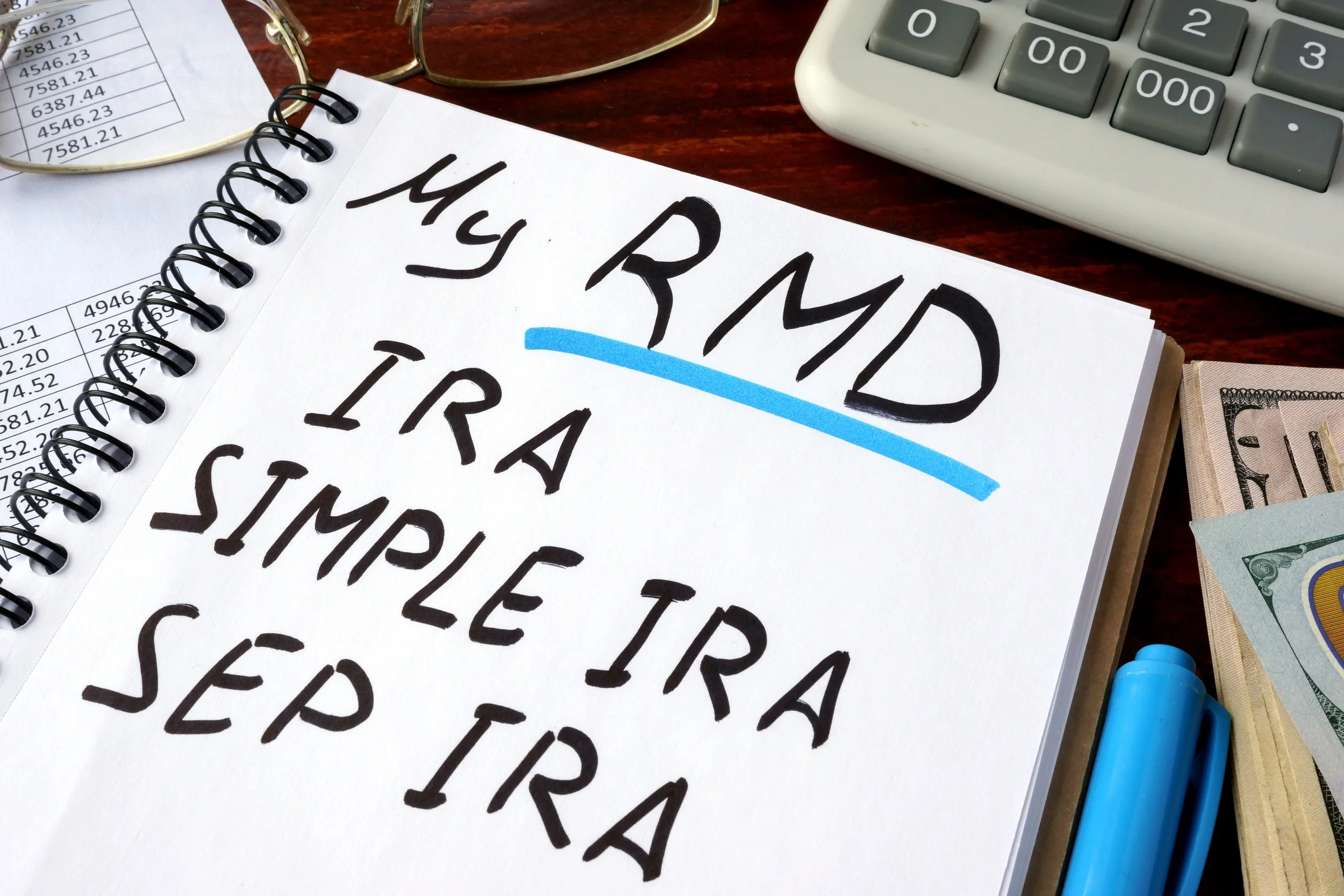Demystifying Required Minimum Distributions (RMDs): Understanding the Tax Implications
Retirement | IRA | 401(k) | Taxes | Distributions | RMD | January 22, 2025
This Week's Quote: "Dream big and dare to fail."
- Norman Vaughan
As individuals diligently save for retirement through various investment vehicles like IRAs (Individual Retirement Accounts) and 401(k)s, there comes a point when the government mandates that a portion of these savings be withdrawn.
These mandatory withdrawals, known as Required Minimum Distributions (RMDs), are subject to specific tax rules that every retiree should know. In this article, we'll delve into the world of RMDs and shed light on how they are taxed.
Understanding Required Minimum Distributions (RMDs)
Required Minimum Distributions (RMDs) are the minimum amount of money individuals must withdraw from their tax-advantaged retirement accounts once they reach a certain age, typically 73 for most retirement accounts. RMDs ensure that individuals don't indefinitely defer paying taxes on their retirement savings.
Retirement accounts like Traditional IRAs and 401(k)s offer tax advantages on contributions and earnings, but the government eventually wants to collect the deferred taxes during the years of saving. RMDs act as a mechanism to ensure that this tax is eventually paid.
Calculating the RMD Amount
The calculation of the RMD amount is based on a formula that considers the account balance, the account holder's age, and the life expectancy factor. The IRS provides life expectancy tables to help individuals determine the divisor for the calculation. The general formula for calculating the RMD is:
RMD = Account Balance / Life Expectancy Factor
As the account holder ages, the divisor decreases, leading to a larger RMD amount and, subsequently, more taxes paid on the distribution.
Taxation of Required Minimum Distributions
RMDs are taxed as ordinary income in the year they are withdrawn. The withdrawn amount is added to the retiree's overall annual revenue and is subject to the corresponding income tax rate. The tax treatment of RMDs is akin to how regular wages or salary income is taxed.
It's important to note that the tax implications of RMDs can vary depending on whether the retirement account is a Traditional IRA, a 401(k), or another similar type. Additionally, if you have made after-tax contributions to your retirement account, a portion of the RMD may be considered a return of your after-tax contributions and, therefore, not subject to income tax.
Penalties for Non-Compliance
Failing to take the required minimum distribution by the specified deadline can result in steep penalties. If the RMD is not taken in the correct amount or on time, the IRS imposes a penalty of 50% of the RMD that should have been withdrawn. This penalty is in addition to the regular income tax due on the distribution.
Strategies for Managing RMD Tax Impact
To mitigate the tax impact of RMDs, retirees often employ several strategies:
Strategic Withdrawals: Plan your RMDs to align with your financial situation for the year, potentially spreading them over multiple months or timing them based on market conditions.
Roth Conversions: Consider converting some or all of your Traditional IRA to a Roth IRA. Roth IRAs don't have RMDs, and withdrawals are generally tax-free.
Charitable Contributions: If you're philanthropically inclined, you can directly transfer your RMD to a qualified charitable organization. This can help lower your taxable income for the year.
Required Minimum Distributions are a crucial aspect of retirement planning that retirees must navigate to avoid hefty penalties and efficiently manage their tax liability. Understanding the calculation and tax implications of RMDs is essential for making informed financial decisions during retirement.
Consulting a financial advisor or tax professional can provide personalized guidance tailored to your circumstances, ensuring you maximize your retirement savings while staying compliant with IRS regulations.
Credit goes to the dedicated team of editors and writers at Newsletter Station on August 28, 2024.
Thank you for all of your questions, comments and suggestions for future topics. As always, they are much appreciated. We also welcome and appreciate anyone who wishes to write a Tax Tip of the Week for our consideration. We may be reached in our Dayton office at 937-436-3133 or in our Xenia office at 937-372-3504. Or, visit our website.
This Week’s Author, Belinda Stickle

